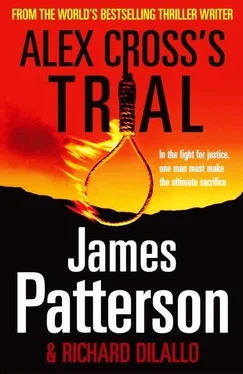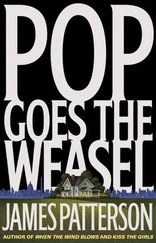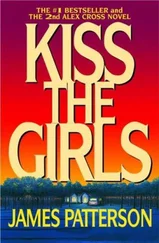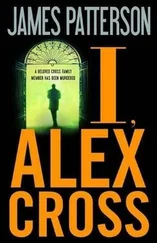Lawd, I been blue
Since my man done left this town…
The little hairs on my neck prickled.
“You heard the blues before, Mr. Corbett?” asked Hiram.
“I have – one time,” I said. “On Beale Street in Memphis.”
Sho done been blue
Since my man done left this town…
“You like the way she sings?” Moody said.
“I do,” I said. “I like it a lot.”
Moody shrugged, like she didn’t much care which way I answered her question.
“I’m a devotee of ragtime music,” I told her.
“You a what?” said Moody. “A deevo – what did you say?”
“Admirer,” I said. “I’m an admirer of ragtime.”
“No, that word you used – what was it again?”
Moody had a bold way of speaking. I must admit I wasn’t accustomed to being addressed by a colored girl without the customary “yes, sir” and “no, sir.”
“Devotee,” I said. “One who is devoted to something. I think it’s from the French.”
“That’s a pretty word,” she said, “wherever it come from.”
He beat me, then he leave me
And now he ain’t been coming round.
When that lament ended, the banjo man put down his instrument and brought out a battered guitar.
Once again I was swept up in the mournful repetition, the slangy bent notes from the singer echoed by the guitar, the way it all fell together into a slow, rhythmic chant of pure feeling. This music was made from leftover parts of old field songs and hymns and slave music, but to me it sounded like something entirely new, and something quite wonderful.
MY BELLY WAS STUFFED full of gumbo and rice. My tongue still burned from the red pepper. I remarked to Abraham on the staying power of the cayenne.
“Here, take a chaw on this,” said Abraham. From his satchel he brought forth a length of brown sugarcane. I smiled. That’s what our cook Aurelia used to prescribe for a sore throat or any other minor childhood complaint: a suck on a piece of sweet cane.
“You got enough for family?” said Moody.
“I got plenty, but it don’t look right for a gal to chew cane,” Abraham said.
She put on such a pout that Abraham laughed and brought out a piece for her and another for Hiram.
“My granddaughter is incorrigible,” said Abraham. “I hope you can forgive her.”
“I don’t need him forgiving me,” she said.
Her grandfather’s face darkened. “Moody? Watch your mouth.”
She dropped her eyes. “Yes, sir.”
“See now, Mr. Corbett, she got so comfortable settin’ here next to you that she’s done forgot how she s’posed to act. If you was any other kind of white man, she could be in big trouble right now, sassing you that way. Same thing goes for Hiram. Even more so .” I had the feeling he said this more for Moody’s and Hiram’s benefit than for mine. Moody kept her eyes riveted fiercely on the floor beside our table.
“See, when you’re colored, you always about this close–” he held up his fingers, indicating a tiny space “–to sayin’ the wrong word. Or lookin’ the wrong way. And that means you this far from gettin’ beat up, or kicked, or punched, or cursed. Or gettin’ strung up and killed by the KKK.”
I took a long sip from my beer.
“Everything a colored man does can be a crime these days,” he said.
“I don’t quite understand,” I said.
Moody’s eyes came up. “Let me tell him, Papaw.”
He hesitated, but then he said, “All right.”
“They’s a young fellow called Whitney,” she said, gazing intently at me. “He spent a day hoeing out the flowerbeds around ol’ Miz Howard’s house, then when she was done he told her how much it was. She didn’t want to pay. Said he hadn’t worked that many hours. Then she calls up the sheriff and says Whitney done said something dirty to her. Well, she got him arrested, but that wasn’t enough for ’em. They come drug him out of the jail and hung him up. Killed him. All because he asked for his pay.” Her eyes blazed.
“That’s the truth, ” said Hiram.
“Sammy Dawkins brung his empty Co-Cola bottle back to Sanders’ store to get his penny back. Ol’ Mr. Sanders tells him niggers don’t get the penny back, just white folks. Sammy argues with him and next thing you know he’s in jail. For wanting his penny! ”
“Keep your voice down,” Abraham said.
“There was a couple boys sitting on the sidewalk downtown. They was talkin’ to each other quiet like, telling about this strike of colored men up in Illinois. Well, sir, somebody overheard what they said, and next thing you know a bunch of men jump on these boys. One of ’em, they knocked out all his teeth.”
“We get punished for ‘boasting,’ and for ‘strutting,’ and for talking too loud, and for casting the evil eye. We get arrested for ‘walking too fast,’ or ‘walking too slow,’ or taking too long to say yassuh. ”
Moody was furious now. Her voice carried to tables nearby. Some of the people stopped their own conversations to listen.
“Colored man looks at a white woman, they kill him just for thinkin’ the thoughts he ain’t even thought,” she said. “If he even looks at a white woman, it must mean he wants to rape her or kill her. When they’re the ones doing most of the raping and killing around here!”
“Now, calm down,” Abraham said.
“Don’t tell me to calm down! I know what it’s like. It happens to me too, Papaw.”
“I know, child.”
“You don’t know what happened yesterday. I was bringin’ the basket of ironing back to Miz Cooper, you know she got that boy Dillard, he’s not right in the head. Well, he out there pulling weeds in the kitchen garden. He looked at me. All I said was, “Howdy, Dillard,” and he says somethin’ real rude, like, ‘Maybe you want to go with me, Moody’ or somethin’ like that. I just ignored him, Papaw. I just kept walking. But he come up behind me and grab me, like, you know, touching my titties.”
“Hush,” said Abraham sternly.
“It’s what happened, Papaw,” she said. “Then he says ‘Aw come on, Moody, you a nigger girl, and ever’body knows that is all a nigger girl wants.’”
And with that, she couldn’t keep the tears in. She folded her arms on the table and buried her head. Hiram stroked her neck.
I spoke softly: “We’re going to do something, Moody. That’s why I’m here with your grandfather.”
There was silence. Then Moody looked up at me and she was angry.
“ Go home, Mr. Corbett . That’s what you could do. Just pack up your bag, and go home.”
“I GUESS YOU PRAYED for mail, Mr. Corbett,” Maybelle said as I walked past the kitchen of the rooming house the next morning. “And the Lord answered.”
She held out a plate with a pair of blackened biscuits and another plate with three envelopes. My heart lifted. But my happiness faded when I glanced through the letters and found that none of them had come from Washington.
I smiled down at the biscuits, thanked Maybelle, and put them aside for disposal later.
On my way over to the Slide Inn, I thumbed through the mail. First I opened a flyer inviting me to a “social and covered dish supper” at the Unitarian church in Walker’s Bridge, one town west of Eudora. In the right-hand margin was a handwritten addition:
“Ben – Hope to see you at the supper. Elizabeth.”
The next envelope also held an invitation. This one was a good deal fancier than the first, engraved on heavy paper, wrapped in a piece of protective tissue.
Читать дальше












